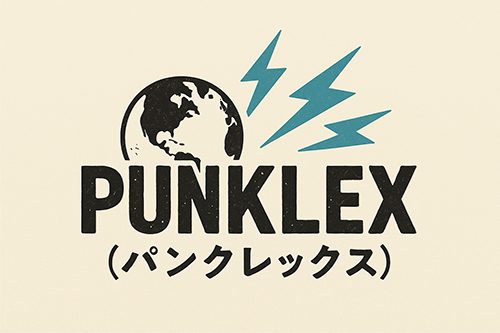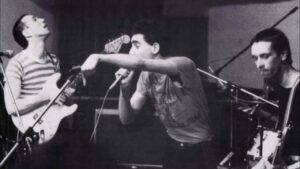Formation & Members
Black Flag, a seminal name in the punk and hardcore scene, was formed in 1976 in Hermosa Beach, California. Founded by guitarist Greg Ginn, the band initially comprised of Ginn, Keith Morris on vocals, bassist Chuck Dukowski, and drummer Brian Migdol. The lineup of Black Flag would undergo numerous changes over the years, with Ginn being the only constant member throughout the band’s turbulent history. Notable vocalists who fronted the band include Dez Cadena, Ron Reyes, and perhaps most famously, Henry Rollins, who joined in 1981 and became synonymous with the band’s intense live performances and aggressive lyrical content.
Musical Style & Characteristics
Black Flag’s musical style is a potent blend of punk rock and hardcore, characterized by aggressive tempos, raw energy, and a DIY ethos that was emblematic of the early punk movement. Their sound was defined by Ginn’s jagged guitar riffs and unconventional song structures, often venturing into the realms of jazz, metal, and even spoken word. The band’s lyrics frequently touched on themes of alienation, anger, and social disillusionment, delivered with a visceral intensity that resonated deeply with their audience. Black Flag’s music was often abrasive and challenging, pushing the boundaries of what punk could be.
Key Works & Discography
Black Flag’s discography is a testament to their evolution as a band and their relentless pursuit of artistic freedom. Their debut EP, Nervous Breakdown (1978), laid the groundwork for their future endeavors with its raw sound and energetic delivery. The band released their first full-length album, Damaged, in 1981, a critical work in the punk canon featuring tracks like “Rise Above” and “TV Party.” The album’s aggressive sound and poignant lyrics cemented Black Flag’s reputation as pioneers of hardcore punk.
Subsequent albums like My War (1984) and Slip It In (1984) showcased a shift towards more complex song structures and experimental sounds, incorporating elements of heavy metal and free jazz. Loose Nut (1985) and In My Head (1985) continued this trend, with the band exploring new sonic territories while retaining their raw edge. Each release contributed to the band’s legacy, marking them as trailblazers who refused to conform to the norms of the genre.
Influence on Other Bands/Scenes
Black Flag’s influence on the punk and hardcore scenes is immeasurable. Their relentless touring schedule and uncompromising DIY approach inspired countless bands to adopt a similar ethos, fostering a sense of community and independence within the punk scene. Bands such as Minor Threat, Bad Brains, and countless others have cited Black Flag as a major influence, not only musically but also in terms of their relentless work ethic and dedication to their craft.
Beyond punk, Black Flag’s experimentation with different musical styles paved the way for genres like grunge and alternative rock. Their willingness to push boundaries and explore new sounds resonated with bands like Nirvana and Soundgarden, who drew inspiration from Black Flag’s fearless approach to music.
Breakups or Reunions
The history of Black Flag is marked by numerous breakups and reunions, reflecting the tumultuous nature of the band’s existence. The band initially disbanded in 1986 after years of internal conflict and legal battles. However, the legacy of Black Flag was far from over, as various members reunited at different points in time.
In 2003, a version of Black Flag assembled for several reunion shows, which were met with enthusiasm from long-time fans. In 2013, two separate factions of the band emerged, with both using the Black Flag name: one led by Greg Ginn and another called FLAG, featuring former members like Keith Morris and Chuck Dukowski. These reunions have sparked debates among fans regarding the authenticity and spirit of the reunions, yet they also demonstrate the enduring impact of Black Flag’s music.
Current Reputation & Legacy
Today, Black Flag is revered as one of the most influential bands in the history of punk rock and hardcore. Their commitment to their music and the uncompromising nature of their art continues to inspire new generations of musicians. Despite the controversies and line-up changes, the band’s reputation as pioneers of the hardcore punk movement remains intact.
Black Flag’s legacy is not only in their music but also in their approach to the industry. They were one of the first bands to embrace the DIY ethic fully, creating their label, SST Records, which played a crucial role in the development of the independent music scene in the United States. This legacy of independence and innovation has left a lasting mark on the music industry.
Conclusion
Black Flag’s journey through the punk and hardcore scenes is one marked by innovation, controversy, and a relentless pursuit of artistic integrity. From their formation in the late 1970s to their enduring influence on countless musicians and genres, Black Flag has carved out a unique place in music history. Their willingness to defy convention and push boundaries has made them a beacon for those who seek authenticity and intensity in music.
As we reflect on Black Flag’s legacy, it is clear that their impact extends far beyond their discography. They have inspired not just a genre but a movement, encouraging artists to take control of their art and remain true to their vision regardless of the obstacles they face. In the ever-evolving landscape of music, Black Flag’s influence remains as potent and relevant as ever.









